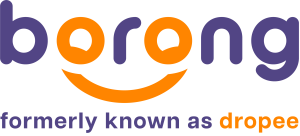COVID-19 has heightened the need for buyers and sellers to move online as constant lockdowns have crippled existing offline channels.
Many B2B players have taken a leaf out of B2C’s playbook, expanding their sales strategy to online marketplaces. By allowing business owners to tap into existing platforms with high traffic, online marketplaces create ample room for B2B businesses to increase their sales and maximise customer reach.
Selling on a marketplace isn’t the only way to grow your business. Download our guide now to get a step-by-step process in bringing your business online!

However, choosing an online marketplace requires serious consideration as each marketplace may involve caveats such as steep commission rates or unclear policies. To determine the right marketplace for your business, you must be aware of these stipulations ahead of time.
But first…
What is an Online Marketplace?

An online marketplace is an e-commerce platform featuring product listings from multiple sellers. Technological advancements have seen it become a staple for many buyers and sellers who want to quickly and efficiently conduct online transactions.
The popularity of online marketplaces in Malaysia can be attributed to various reasons. The surge in grocery e-commerce is one of them. Malaysia’s FMCG and grocery e-commerce industry ranks in the top 3 in Statista’s world fastest-growing grocery market list in 2018, and IGD Asia predicts that the online grocery sales value will see a CAGR of more than 60% between 2017 to 2022.
Many of our consumers also make up the mobile-first generation with two million Malaysians accessing the internet via mobile and 80% of online shoppers falling in between the ages of 16 – 64. A JP Morgan study reported that mobile phones are the preferred choice when it comes to online shopping and accounted for USD$1.9 billion in e-commerce sales across Malaysia in 2019.
Our internet penetration rate of 91.7% is also considerably higher than many of our Southeast Asian counterparts.
On top of that, digital payments make up a significant percentage (93%) of e-commerce transactions in Malaysia. A growing number of local businesses with an e-money license for platforms such as Paypal, Alipay and Google Pay further indicates a strong use of digital payments.
This brings us to our next question–why sell on an online marketplace?
Why Should You Sell on an Online Marketplace?
From lowered costs to additional revenue, there are various perks that come with selling on an online marketplace.
Increase Brand Awareness
Today, shoppers are smarter than ever. They compare prices whenever possible – and marketplaces are often the initial touchpoint for conducting product research.
Selling on an online marketplace will increase the visibility of your products and create an additional avenue for you to reach new audiences.
Listing your items on an online marketplace allows you to access their user-base and reach thousands of customers who otherwise may not have a chance to learn about your product. For example, Dropee is currently home to over 50,000 buyers across Malaysia, making it a sizable customer base for sellers to tap into.
An online marketplace is also great for featuring additional product information or customer reviews that encourage buyers to learn more.
Additionally, selling on an online marketplace can help you build trust amongst potential customers. First-time buyers may be hesitant to shop from an unknown website. This means being part of an established marketplace can help you enhance your brand credibility and work your way towards encouraging new customers to shop with you.
Marketplaces are also often integrated with secure payment gateways, making them a safer and more reliable place to transact – an especially important ingredient in building trust.
Lowered Costs
Most marketplaces do charge a standardised fee structure, some have a monthly subscription fee, others take commission fees or listing fees for each product featured. But these usually amount to lesser than what you would pay for building and running your own website.
Selling on social media is a cheaper option, but on social media, orders may come in through different channels, like WhatsApp, phone calls, direct messages, or all of the above! On an online marketplace, you only need to focus on one channel – which saves you time and resources.
Featuring your products on an online marketplace also doesn’t require much technical skills or marketing experience to get started. Unlike setting up and hosting your own website, everything ranging from customer experience to order and payment tracking have already been put into place.
This means that once your products are listed and your payment options have been set up, you’re ready to start selling. You won’t have to worry about server maintenance or updating your website plugins!
Additional Support Options
Rather than having to manually set everything up by yourself, online marketplaces already have infrastructures set in place. These include everything from shipping and delivery systems to payment gateways and user data insights.
Each marketplace has its own set of incentives. This might include reduced commission rates, extended credit or zero product listing fees. These can be especially useful for smaller, up-and-coming businesses that are in the midst of finding their footing.
Do your research on what each one has to offer to ensure that you pick a marketplace that fulfils your business needs. Most marketplaces provide free consultations that allow you to schedule a call or meet with a sales representative.
Be sure to take advantage of this offer to get in-depth and detailed insight into the full set of unique offerings provided.
Being able to leverage these readily available services means you can just focus on growing the business and building relationships with your customers. Furthermore, you save on operational costs as you won’t require an on-site team to manage these systems.
How To Pick the Right Online Marketplace for Your Business

For B2B businesses who are new to e-commerce, the process of selecting a marketplace may seem challenging at first. Not all marketplaces are created equal and it’s important to take your time to determine which one will be best for your business.
To help you get started, we’ve lined up several important considerations for choosing the best online marketplace.
Know Your Audience
It is important to first understand how your products will fit into the marketplace of your choice. For example, someone who sells fashion goods will likely receive better results when they list their products on a dedicated marketplace for fashion items instead of an FMCG-oriented marketplace.
The key is to remember that an increase in sales is not guaranteed unless you have captured the correct audience demographics.
Marketplace Size
The size and audience reach of a marketplace is a major determinant during the decision making process.
- How many active buyers does the platform currently have?
- Do they have a strong enough web presence to continuously attract new buyers?
- What’s the retention rate?
All of this will determine how much potential traffic it has compared to your current selling methods and helps to decide if it’s right for your business.
Find Out About Support Services
Knowing the type of support you’ll get from your marketplace is something you should not miss out.
- What kind of logistical support can you expect?
- Are there any financing options available to aid your cash flow?
- Is there a client support structure and what is it like?
Knowing what you’re signing up for is vital to minimise disruptions. It also helps you make sense of your costs when comparing different marketplace partners.
Read The Fine Print
Incentives are great but be sure to also read up on the policies attached to them. Security is important but knowing what you’re signing up for will give you far more insight into what you’re going to be working with.
Some of the things you need to be thinking about at this point include commission rates and payout timelines. Some marketplaces may charge higher rates on the basis of having a larger user-base while others may operate on a tiered basis – where price points are adjusted according to the product offerings provided within each tier.
For payout timelines, sift through the options on which works best for you as this can affect your cash flow. For example, Amazon’s seller payout schedule follows a 2-week schedule while Facebook typically pays its sellers within 15 to 20 days.
Reach New Customers with Dropee
Marketplaces are growing at an exponential rate, accounting for 40% of the global online retail market in 2020. A thriving e-commerce environment in Malaysia will see the continuous rise of online marketplaces.
Not only is it a channel that offers sellers opportunities in increasing revenue and acquiring new customers, it’s also a fantastic way for B2B businesses who are still in the exploratory stage of e-commerce to get started with digital trade.

For sellers who are keen on taking this next step, Dropee is an e-commerce provider that supports local B2B entities by providing them with the tools they need to optimise their business.
From marketplace solutions that can open up avenues for your business to reach new customers, to digital services that help with inventory tracking and stock management, we make technology accessible to businesses of all sizes. Contact our sales team for a free consultation today to learn more about how we can help you fast-track your growth!



0 Comments